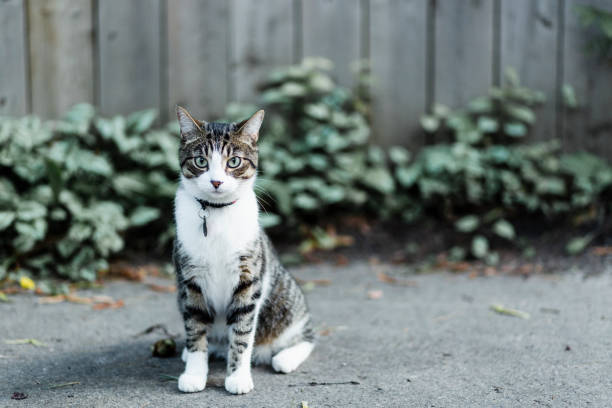When your cat won’t eat, it’s one of the biggest problems you’ll ever face as a cat owner. Just one of the many times this has happened to me has ended positively. Because of my extensive knowledge, I can answer that question and ensure your cat has the best chance of survival.
In other words, how long can a cat survive without eating? After this period, your cat can begin to use fat stores for energy. Hepatic lipidosis is a life-threatening disease that occurs when a cat uses its fat stores for energy. You should be aware that this can quickly lead to liver failure, which is fatal.
HOW LONG CAN A CAT SURVIVE WITHOUT FOOD BEFORE STOPPING FOOD?
The average cat can go up to two weeks without food if it has access to water. Without proteins, she can take up to four days to die, even with adequate water. Three days without water or food is a long time for a cat. Remember that after just two days without food, a cat can become hungry, and sick, and may even need medical attention when it comes to cat health. For their own well-being and happiness, cats need a constant supply of food and water.

Don’t assume that your cat can hunt and catch its own food when it needs to. Not every cat can independently hunt and catch mice, birds, squirrels, and other small animals; this is a fact that many people are unaware of. Indoor cats often get used to being fed at certain times and may not seek an alternative food source when this is not the case.
WHAT’S UP TO MY CAT’S APPETITE? WHAT CAUSE?
Some cat owners complain that their cat eats too quickly and too much, while others complain that their cat refuses to eat at all. Not eating can be a warning sign of a health problem, but there are other, less worrying, reasons your cat might stop eating. The most common include:
- Vaccination with a new vaccine or drug
- Changes in routine can trigger anxiety or worry.
- a brand new menu item
- The slowed metabolism of an aging cat is not uncommon.
- problems with the digestive system
- Inflammation of the gums and teeth
- nephrology
- Constipation, indigestion, or constipation.
- inflammation of the pancreas
- boredom/business
When your cat won’t eat from its bowl, it can have a variety of causes, some serious and others going away as quickly as they came. So the obvious question is: when should you take your cat to the vet for loss of appetite?
WHAT CAN I DO TO GET MY CAT TO EAT MORE?
At the beginning of the scenario, you should observe the cat and try to understand why it is not eating because nature and its own instinct know what is good for it.
Cats should not be left hungry for more than twenty-four hours at a time. Take her to the vet if she doesn’t eat within this period.

Below are some suggestions on how to make dinner more enjoyable. If the animal is on medication or has recently been vaccinated, it is very important to introduce food slowly. Help him make time for his meals. Change the food – Wet food is more flavorful compared to dry food. To improve the taste of the dry food, you should either switch to wet food or add some wet food to the dry food. Never put your cat on a diet without first consulting your veterinarian. Relax the Atmosphere – Feed her in a place where she won’t be disturbed, e.g. B. in a separate room. Take your time and let her eat when she’s ready.
HOW LONG SHOULD I WAIT TO SEE MY PET DOCTOR?
This is a common problem for pet owners. It’s the feline balance of how sick you need to be before you see your doctor for an exam. Our vet would rather you go to the doctor with a minor problem than see your pet’s condition deteriorate quickly.
First, analyze your cat’s usual eating habits. If they’re picky eaters, it’s not uncommon for them to skip a meal or two. Mild cold or upper respiratory illness is another reason she won’t eat, and some cats may not eat for a day or two after vomiting a hairball.
If you’ve recently adopted a pet, had guests over, or moved house and your cat’s lack of food coincides with a change in habits, it could be stress or anxiety. Observe them for a few days to see if resuming the habit results in normal eating habits.
We recommend that you keep an eye on your kitten for 24 hours after she has stopped eating or has refused to eat. Notice if she is drinking less water and if she is changing her behavior. If he’s still not eating after 24 hours, you should take him to the vet to rule out any important medical problems.
